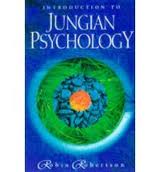Introducing Jungian Psychology by Robin Robertson (book review)

Tasha Tollman reviews an Introduction to Jungian Psychology.
In Introducing Jungian Psychology, Dr Robertson provides the reader with the overall feel of Jungian psychology, sketching out a basic outline of the concepts and providing modern day examples.The book introduces the concepts of conscious, personal unconscious and collective unconscious as Roberston unpacks the structure and dynamics of the psyche; the meaning of dreams; personality types and archetypes before presenting Jung’s more abstract concepts about the processes that interact as one struggles along the road to individuation – the shadow, the anima/animus and the Self.
I have always found the four functions to be complicated and difficult to understand, Robertson’s linking of the four functions to the path of individuation – “we can’t begin to understand anyone’s proper developmental path unless we recognize that people of different psychological types grow and develop in different ways.” (p81) got my interest and for the first time I was able to play with identifying my own function and I must confess to playing around with the functions of my family and friends. Robertson’s description of the difference between the introvert and the extrovert – “extraversion is a turning outward toward the world for energy, introversion a turning inward toward the psyche.” (p75) cleared up what for me has always been a bit of a grey area, as I had the tendency to view the outgoing personality as extraverted and the withdrawn personality as introverted, a completely different distinction.
In my seventh year on the path to individuation, yes it is a lifelong journey, I was able to relate to Robertson’s descriptions of working with the shadow, anima/animus and the Self and identify which parts of the journey I have encountered and which may still await me.
Whilst the book provides a good overview of Jung’s work, it’s fascination for me lies in what Robertson confesses as his …”somewhat idiosyncratic insights into Jungian psychology..” as he links Jung’s concepts with studies of the brain structure; the work of Marshall McLuhan -The Gutenberg Galaxy, understanding media, how the advent of print led to a change in the way we perceive our world; mass consciousness; hologram theory, the Grail legend and many more detours along the way. I thoroughly enjoyed these detours and idiosyncratic insights as they allowed me to view Jung’s concepts through different eyes. I marveled at the uniqueness of each person’s journey and was reminded of Jung’s insight that each of us is an individual, an individual that has to find our own path to individuation, to becoming all we were meant to be. However Robertson doesn’t differentiate in the book his own unique personal thoughts on psychology and social behavior in general and the work of Jung. For those new to Jung this muddle can be very misguiding and could take the reader years to unravel Jung’s work from Robertson idiosyncratic insights.
Critics of Robertson heatedly describe his audacity, as he decides on a number of occasions that he has better terminology than Jung for example substituting Maslow’s self-actualisation for Jung’s individuation and archetype for cognitive invariant. Personally, I loved Robertson’s audacity and irreverence as he strives to integrate Jung’s concepts and make them come alive for him. These “idiosyncratic insights” and his audacity and irreverence had me rethinking and grappling with concepts I thought I understood completely. It was fun to see Jung through new eyes, to find myself challenged and rethinking my take on Jung’s concepts like individuation and archetype but I’m not sure that Robertson’s take is an objective view on Jung’s concepts, I’m not sure that self-actualisation is the same as individuation or that archetype can be substituted for cognitive invariant.
If you are looking for an introduction to Jung’s work that clarifies and explains Jung’s thoughts and ideas, I would caution you, this book should come with a warning –“read at own risk” but if you are looking for insight into how an individual’s worldview is changed, molded and individualized by the Jungian journey, then you will take great delight and gain tremendous insight from this book.
Tasha Tollman is a NLP & ETDP Practioner who spends her days as a journalist, trainer and coach, the rest of her time is devoted to Applied Jungian and counseling studies, as she adventures through life questioning, imagining and connecting.


Leave a Reply